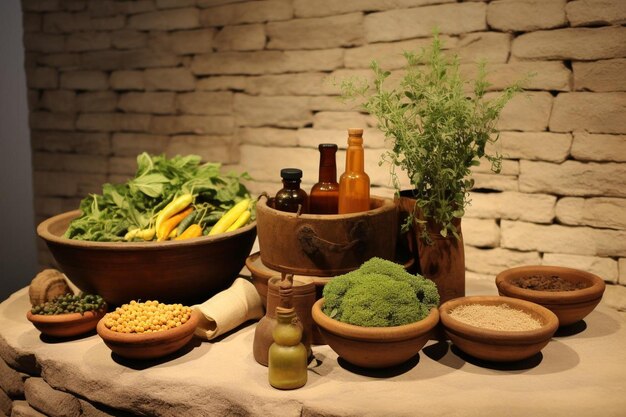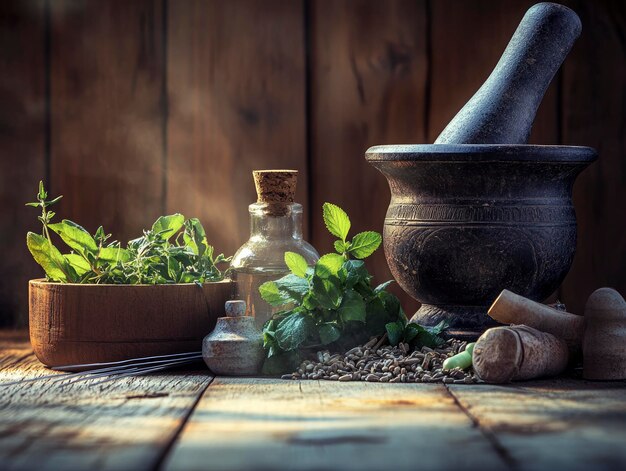Raktapitta Samprapti – Ayurvedic Understanding of Blood Disorders and Treatment

Introduction to Raktapitta Samprapti
Raktapitta Samprapti refers to the Ayurvedic understanding and treatment of blood disorders, primarily related to the imbalance of the Pitta dosha. In Ayurveda, Pitta governs the body's metabolic processes, including digestion, heat regulation, and the quality of blood. When Pitta is aggravated, it leads to conditions like excessive bleeding, hemorrhages, skin rashes, and other blood-related issues. The treatment of Raktapitta focuses on pacifying the Pitta dosha, detoxifying the blood, and restoring balance in the body’s system. Ayurveda offers a holistic approach to address the root causes of these blood disorders while promoting overall health and wellness.
Don't wait or self medicate. Start chat with Doctor NOW
Historical Roots & Ayurvedic Significance
In ancient Ayurvedic texts, Raktapitta is described as a condition where the blood becomes vitiated due to the excess heat or fire in the body. This imbalance, often associated with Pitta dosha, leads to various symptoms such as bleeding disorders, excessive heat, and inflammation. Raktapitta is categorized into two forms: acute and chronic, both of which require careful treatment to avoid complications. Ayurveda emphasizes the importance of balancing Pitta to restore harmony and prevent further aggravation of the condition. The natural remedies, therapies, and dietary adjustments recommended in Ayurveda focus on detoxifying the body and nourishing the blood to restore balance and overall health.
Key Components & Therapeutic Benefits
1. Causes of Raktapitta Samprapti
Raktapitta arises primarily due to an imbalance of the Pitta dosha, which is aggravated by several factors:
- Diet: Excessive consumption of spicy, oily, and sour foods increases Pitta, leading to blood disorders.
- Stress and Anger: High levels of stress or anger can ignite Pitta, leading to inflammation and other related conditions.
- Environmental Factors: Exposure to extreme heat and sunlight can aggravate Pitta, worsening blood health.
- Genetic Predisposition: Individuals with a family history of blood disorders may be more susceptible to Raktapitta.
2. Ayurvedic Treatment for Raktapitta Samprapti
Ayurveda offers several natural treatments to balance Pitta dosha and address blood-related disorders:
-
Herbal Remedies:
- Guduchi (Tinospora cordifolia): Known for its blood-purifying and cooling properties, Guduchi helps detoxify the blood and balance Pitta.
- Bhringraj (Eclipta alba): This herb is useful for rejuvenating the blood and preventing excessive bleeding.
- Manjistha (Rubia cordifolia): A powerful herb for blood purification, it helps reduce inflammation and supports the circulatory system.
- Amalaki (Emblica officinalis): Rich in vitamin C, Amalaki helps detoxify the blood and cools the body, reducing Pitta-related heat.
- Turmeric (Curcuma longa): Known for its anti-inflammatory and blood-cleansing properties, turmeric helps reduce blood-related issues associated with Pitta.
-
Panchakarma (Detoxification Therapies):
- Virechana (Purgation Therapy): This therapy helps remove excess Pitta and toxins from the body, reducing inflammation and balancing the blood.
- Raktamokshana (Bloodletting Therapy): A traditional therapy used to treat Raktapitta by directly cleansing the blood, although it should only be performed under expert supervision.
- Abhyanga (Oil Massage): Helps balance Pitta by calming the body and promoting circulation.
3. Dietary Recommendations for Raktapitta
In Ayurveda, diet plays a crucial role in managing Raktapitta. It is important to avoid foods that increase Pitta and include those that balance it:
- Cooling Foods: Include foods like cucumbers, coconut, and dairy products to reduce heat in the body.
- Pitta-Pacifying Spices: Use spices like coriander, cumin, and cardamom, which help cool the body and improve digestion.
- Fruits and Vegetables: Include sweet, bitter, and astringent fruits like apples, pomegranates, and leafy greensthat help cleanse the blood and balance Pitta.
- Avoid Pitta-Aggressive Foods: Limit the intake of spicy, oily, salty, and fermented foods.
4. Lifestyle Modifications for Managing Raktapitta
In addition to dietary changes, lifestyle modifications can significantly impact the management of Raktapitta:
- Stress Management: Engage in meditation, yoga, and breathing exercises to calm the mind and reduce the effects of stress on the body.
- Hydration: Drink plenty of cool, soothing liquids like herbal teas or water with mint and cucumber to stay hydrated and reduce internal heat.
- Rest and Sleep: Adequate rest is important to restore energy and allow the body to heal. Ensure good quality sleep to support the body’s natural detoxification processes.
How Raktapitta Samprapti Works: The Science Behind the Condition
Raktapitta occurs when the Pitta dosha, responsible for heat and metabolism, becomes aggravated, leading to the vitiation of the blood. The imbalance causes symptoms such as bleeding, rashes, inflammation, and excessive heat. Ayurveda addresses this condition by using cooling and detoxifying herbs to reduce Pitta, cleanse the blood, and restore balance in the body. Ayurvedic therapies and treatments work synergistically to address the root cause of the imbalance, providing both symptomatic relief and long-term healing.
Choosing the Right Ayurvedic Treatments & Guidance
When considering Ayurvedic treatment for Raktapitta, it is important to:
- Consult Certified Ayurvedic Practitioners: Personalized consultation ensures the treatment plan is tailored to your specific needs and health conditions.
- Ensure Quality Herbs: Always choose organic, high-quality herbs to maximize their therapeutic effects.
- Source from Reputable Vendors: Purchase Ayurvedic products from trusted sources to ensure authenticity and safety.
Recommended Dosage & How to Use Ayurvedic Remedies
The dosage of Ayurvedic remedies varies depending on individual health conditions. Some general guidelines include:
- Guduchi Powder: 1-2 teaspoons, once or twice a day with warm water.
- Manjistha: 1 teaspoon of powder mixed with warm water or honey, twice a day.
- Amalaki Capsules: 500 mg once or twice a day after meals.
- Turmeric Milk: 1/2 teaspoon of turmeric mixed in warm milk, taken once daily.
Always consult an Ayurvedic practitioner for specific dosage recommendations.
Potential Side Effects & Precautions
Although Ayurvedic treatments for Raktapitta are generally safe, there are a few precautions to keep in mind:
- Allergic Reactions: Always check for any allergic reactions when trying new herbs or treatments.
- Pregnancy & Nursing: Pregnant or nursing women should consult an Ayurvedic practitioner before using any treatments.
- Dosage Adjustment: Start with a smaller dose and gradually increase to observe how your body responds.
- Underlying Conditions: If you have pre-existing medical conditions, seek professional advice before starting Ayurvedic treatments.
Frequently Asked Questions For Raktapitta Samprapti
What causes Raktapitta in Ayurveda?
Raktapitta is caused by an imbalance in the Pitta dosha, often triggered by factors such as poor diet, stress, genetic predisposition, and environmental factors like heat. These factors increase the internal heat, leading to blood vitiation, excessive bleeding, and inflammation.
How can Ayurveda treat blood disorders like Raktapitta?
Ayurvedic treatments for Raktapitta involve using cooling herbs like Guduchi, Amalaki, and Manjistha, along with therapies such as Panchakarma and Raktamokshana. These treatments aim to detoxify the blood, balance Pitta, and reduce inflammation.
What herbs are used to treat Raktapitta?
Common herbs used to treat Raktapitta include Guduchi, Bhringraj, Manjistha, Turmeric, and Amalaki. These herbs help purify the blood, cool the body, and restore Pitta balance.
Can lifestyle changes help manage Raktapitta?
Yes, lifestyle changes such as stress management, proper hydration, and sufficient rest can help manage Raktapitta. It is also important to avoid excessive heat and stress, which can aggravate the Pitta dosha.
Is Raktapitta a chronic condition?
Raktapitta can be both acute and chronic. If left untreated or not managed properly, it may become chronic. However, with timely Ayurvedic intervention, the condition can be managed and even prevented.
How long does it take to recover from Raktapitta?
The recovery time from Raktapitta depends on the severity of the condition, consistency in following Ayurvedic treatments, and adherence to dietary and lifestyle changes. Some people experience relief in a few weeks, while others may take longer.
Can Raktapitta be cured permanently with Ayurveda?
While Ayurveda can provide significant relief and prevent flare-ups, the condition may require ongoing management, especially if there are recurring imbalances in Pitta dosha. Personalized treatment plans are essential for long-term relief.
Conclusion & Expert Insights
Raktapitta Samprapti represents a blood disorder caused by the aggravation of the Pitta dosha. Ayurveda offers a holistic approach to manage and treat this condition by using natural remedies, therapies, and lifestyle adjustments to restore balance and promote blood health. By addressing the root causes and symptoms of Raktapitta, Ayurveda provides an effective and long-lasting solution to maintain overall health and vitality.
References & Further Reading
- Sharma, P.V. (1995). Ayurvedic Healing: A Comprehensive Guide.
- Lad, V. (2002). Ayurveda: The Science of Self-Healing.
- Journal of Ayurveda and Integrative Medicine for research articles on blood purification and Ayurvedic treatments for Pitta-related conditions.
Got any more questions?
Ask Ayurvedic doctor a question and get a consultation online on the problem of your concern in a free or paid mode.
More than 2,000 experienced doctors work and wait for your questions on our site and help users to solve their health problems every day.



